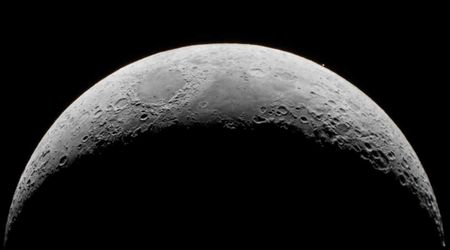Norway becomes 55th nation to push for peaceful space cooperation by signing NASA’s Artemis Accords

NASA has announced that Norway is the 55th country to commit to the Artemis Accords. Formalized on May 15 with a ceremony in Oslo, Norway's Minister of Trade and Industry, Cecilie Myrseth, signed the agreement on behalf of the Norwegian government, as reported by Space.com. "We are pleased to be a part of the Artemis Accords,” Myrseth said. “This is an important step for enabling Norway to contribute to broader international cooperation to ensure the peaceful exploration and use of outer space.” Guaranteeing a secure and thriving future for space exploration seems to be at the forefront of people's minds, with 77 countries currently housing space research agencies.

The United Nations and Norway share a long history of space collaboration, dating back to 1962 when NASA supported Norway's first civilian suborbital rocket launch above the Arctic Circle from Andøya Space. This established partnership highlights the existing strong ties between the two nations in space-related endeavors. Acting NASA Administrator, Janet Petro, announced, “We’re grateful for the strong and meaningful collaboration we’ve already had with the Norwegian Space Agency... Now, by signing the Artemis Accords, Norway is not only supporting the future of exploration, but also helping us define it with all our partners for the Moon, Mars, and beyond.”

Recognizing the growing number of nations and private companies engaged in lunar missions and operations, NASA, in conjunction with the US Department of State and seven initial signatory countries, established the Artemis Accords in 2020. These Accords serve as a unified set of principles aimed at strengthening the governance of civil exploration and the utilization of outer space in this increasingly active environment. These Accords build upon existing international space law, such as the Outer Space Treaty, the Registration Convention, and the Rescue and Return Agreement, while also promoting best practices for responsible civil space exploration and use, as per NASA's report. By aligning themselves with the obligations under the Artemis Accords, nations largely benefit from shared technological advancements, data, and resources, thereby paving the way for an inclusive approach to space discovery and innovation.

NASA's current endeavor — the Artemis Program — aims to re-establish a human presence on the moon, paving the way for crewed missions to Mars in the future. The program's inaugural mission, Artemis 1, launched in November 2022, successfully sent an uncrewed Orion spacecraft into lunar orbit and back using the Space Launch System (SLS) rocket. On the other hand, Artemis 2, now anticipated to launch in February 2026 — due to additional preparation time needed for the Orion capsule following heat shield concerns on Artemis 1— will send four astronauts on a circular "free return" trajectory, from the moon and back. While Artemis 3, targeted for 2027, is slated to be the first crewed lunar landing under the program, the future of Artemis is uncertain beyond this mission. A recently proposed White House budget includes a significant cut of nearly 25% to NASA's funding, which entails the cancellation of the SLS rocket after Artemis 3, and the termination of the gateway lunar space station project — both of which were intended to support later Artemis missions, as reported on Space.com.
The United States’ outreach and implementation of the Accords is led by the Department of State and NASA, which works to ensure representation, inclusivity, and peace in the domain of space exploration.









